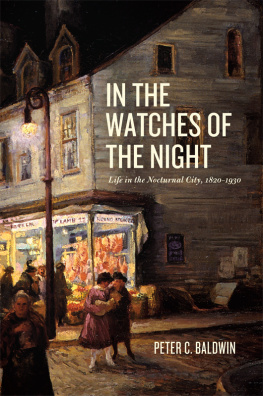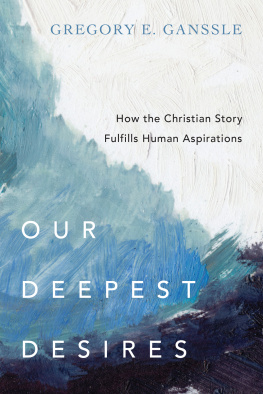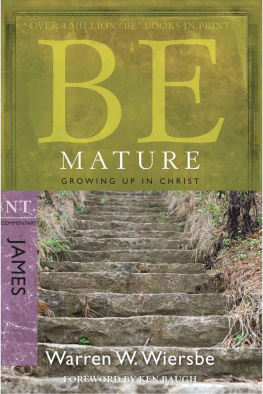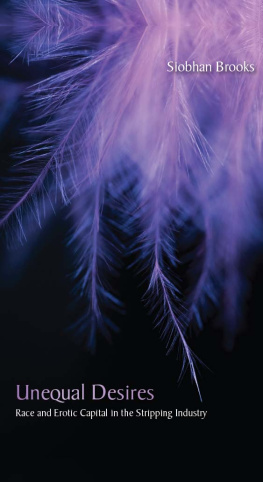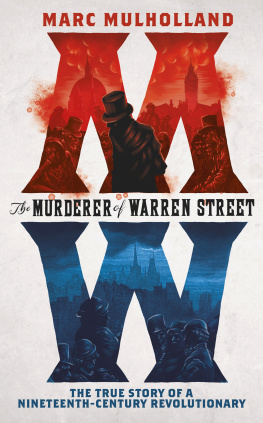Cover image: Samuel Edward Warren with unidentified young man, circa 1870. On back is written: The Patience of Hope, or Showing Him His Mark, AC 18, Institute Archives and Special Collections, Rensselaer Polytechnic Institute, Troy, New York.
Published by State University of New York Press, Albany
2020 State University of New York
All rights reserved
Printed in the United States of America
No part of this book may be used or reproduced in any manner whatsoever without written permission. No part of this book may be stored in a retrieval system or transmitted in any form or by any means including electronic, electrostatic, magnetic tape, mechanical, photocopying, recording, or otherwise without the prior permission in writing of the publisher.
For information, contact State University of New York Press, Albany, NY
www.sunypress.edu
Library of Congress Cataloging-in-Publication Data
Name: Baldwin, Peter C., author.
Title: Angel on a freight train : a story of faith and queer desire in nineteenth-century America / Peter C. Baldwin, author.
Description: Albany : State University of New York Press, [2020] | Includes bibliographical references and index.
Identifiers: ISBN 9781438479958 (hardcover : alk. paper) | ISBN 9781438479965 (ebook)
Further information is available at the Library of Congress.
10 9 8 7 6 5 4 3 2 1
Acknowledgments
In completing an academic book, there is no moment of achievement that seems to demand champagne. Every step is incremental and slow. You certainly wouldnt pop open the bubbly when you write the last word of the first draft, knowing that many drafts lie ahead. Nor does it seem worth celebrating when the manuscript goes to the publisher or when it passes peer review. Signing the contract is a formality, checking page proofs is a chore, and by the time the box of books arrives in the mail youve long since moved on to other projects. For me, this is the closest approximation to the finish line: writing the acknowledgments. During long years of working through this unexpectedly difficult project, I looked forward to the moment when I could thank the people who helped me along the way.
I started the project with modest ambitions. I built up more enthusiasm and new ideas as I talked about S. Edward Warren with my sister Sarah Baldwin Evangelista and my friend Randy Burgess, and when I shared a rough precis with my colleagues Alexis Boylan and Sylvia Schafer. Richard Brown, Howard Chudacoff, Patricia Cline Cohen, Timothy Gilfoyle, Robert Gross, and Peter Stearns all supported me in seeking funding for the project.
A years fellowship at the University of Connecticut Humanities Institute gave me time for uninterrupted research and for initial formulation of the narrative. While there, I benefited from the helpful suggestions of Mohammed Albakry, Bob Gross, Sharon Harris, Jessica Linker, and Nicola McDonald. Jessica Linker deserves special thanks for volunteering many hours to helping me decipher the manuscripts; assisting me also in grant writing, she was invaluable in leading me rethink and refocus my interpretation of S. Edward Warren. Mark R. Smith took some amazing digitally enhanced photos of the manuscripts; financial support for this work came from the Felberbaum Family Foundation and the James L. and Shirley A. Draper Chair in American History.
I am grateful for the assistance of archivists and librarians at the American Antiquarian Society, Amherst College, the Charlton Historical Society, the Emma Willard School, the Harriet Beecher Stowe Center, Harvard Universitys Houghton Library, the Jackson Homestead and Museum in Newton, the Massachusetts Archives, the Massachusetts Historical Society, the Massachusetts Institute of Technology, the Newburyport Public Library, the New England Historic Genealogical Society, the New York State Library, Phillips Academy Andover, the Rensselaer County Historical Society, the Rensselaer Polytechnic Institute, Stevens Institute of Technology, the University of Delaware, the University of Connecticut, and the Winterthur Library. UConn Archivist Betsy Pittman and RPI Assistant Archivist Jenifer Monger were especially helpful and supportive. Frank Morrill of the Charlton Historical Society kindly showed me the places where Warren worked, lived, and walked.
Numerous people offered comments and suggestions in response to hearing my presentations or reading drafts of portions of the manuscript. Among the many helpful readers were Christopher Clark, Martha Cutter, Clare Eby, Kathryn Lofton, Vicki Magley, Susan Matt, Shawn Salvant, Nancy Shoemaker, and Chris Vials. I am particularly grateful to Dick Brown for reading and extensively commenting on the first completed draft. Thanks also to the editors at the State University of New York Press, Rebecca Colesworthy and Amanda Lanne-Camilli, and senior production editor Diane Ganeles; the copyeditor, Alan Hewat; and the peer reviewers (William Benemann, Janet Moore Lindman, and John Corrigan).
Throughout the long travail of writing and publishing the book, I was fortunate to have the encouragement and advice of wonderful colleagues, including Dick Brown, Pat Cohen, Frank Costigliola, Cornelia Dayton, Bob Gross, Micki McElya, Nancy Shoemaker, and Manisha Sinha. As always, I relied on the support of the efficacious Vicki Magley.
There are no doubt others I have neglected to thank. I may remember them later, with embarrassment and a slap to the forehead. (My apologies in advance.) But by then the book will be out and this project will have finally come to an end.
Introduction
Words, Flesh, and Spirit
When I was a child, I spake as a child, I understood as a child, I thought as a child: but when I became a man, I put away childish things.
1 Corinthians 13:11
Professor Samuel Edward Warren loved to save boys and young men from sin, especially boys who struck him as pretty and young men who seemed sensitive or confused. An opportunity arose one day in 1860 as he walked the unpaved streets of Troy, New York: a loose ball from a boys game bounced into his path. Deep in thought as he tended to be on his walks, the grave young professor may have been too slow to stoop and make the catch, or perhaps he was disinclined to touch the grubby toy with his fingers. He simply turned his foot to stop the ball and watched as the pursuing boy ran up to him. The child had been cursing, much to Warrens chagrin, but his profanity stopped and his frown cleared when he saw what the bearded gentleman had done. He flashed a brilliant smile before recovering the ball. As the boy ran back to his friends the professor walked on alone, pondering what had just happened.
Two lives, two very different consciousnesses, had briefly crackled into contact, and the encounter had seemed blessed. Warren had succeeded, he wrote, in performing Gods work on this providential occasion of putting an end to anothers sin. young sinners that Warren had once enjoyed. In his adolescence, Warren had cultivated intense friendships with slightly younger boys. He would draw, read, and sing with them, and when the time felt right he would engage them in conversation on the state of their souls. With a few, he became intimate, sealing their Christian brotherhood with kisses and loving embraces in bed.


